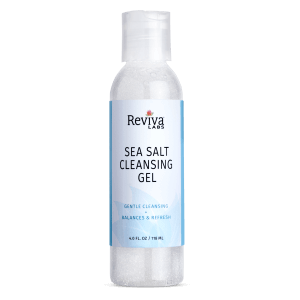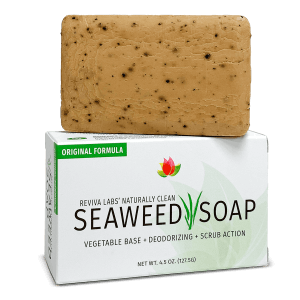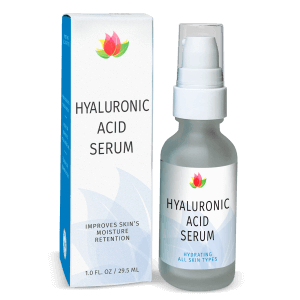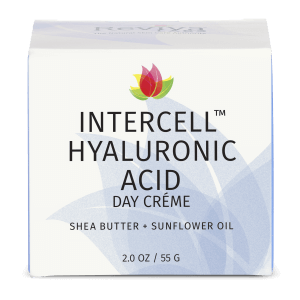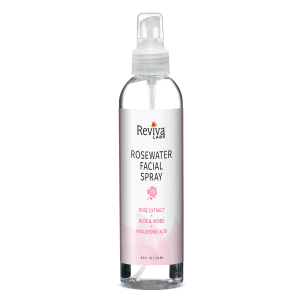Reviva Labs, Skin Care
Skincare Routine for Psoriasis-Prone Skin
Living with psoriasis-prone skin requires a thoughtful approach to skincare. This chronic, autoimmune condition, characterized by red, flaky patches on the skin, can be both physically uncomfortable and emotionally challenging. The right skincare routine can significantly alleviate symptoms, promoting healthier skin and improving overall well-being. While there is no one-size-fits-all solution, certain practices and products have proven to be beneficial for many individuals with this condition.
Understanding Psoriasis and Its Impact
Psoriasis is more than just a skin condition; it’s a signal from your body that something is amiss with your immune system. The rapid turnover of skin cells leads to the buildup of patches that can be itchy, painful, and even lead to cracking and bleeding. It’s a condition that not only affects the skin but can also have profound psychological impacts, contributing to feelings of self-consciousness and social anxiety. Acknowledging the multifaceted nature of psoriasis is the first step in crafting a skincare routine that addresses both the physical and emotional aspects of the condition.
Gentle Cleansing: The Foundation of Your Routine
The cornerstone of caring for psoriasis-prone skin is gentle cleansing. Harsh soaps and cleansers can strip the skin of its natural oils, exacerbating dryness and irritation. Opting for mild, fragrance-free cleansers that moisturize as they clean can help maintain the skin’s natural barrier, reducing the likelihood of flare-ups. This doesn’t mean compromising on cleanliness but rather choosing products that support skin health without causing unnecessary irritation.
Moisturizing: Locking in Hydration
After cleansing, moisturizing becomes a critical step. Psoriasis-prone skin tends to be dryer and more susceptible to irritation, making regular moisturization essential. Thick, emollient creams and ointments are particularly effective, as they help to lock in moisture, soothe irritation, and form a protective layer over the skin. Look for products containing hyaluronic acid, ceramides, or glycerin, as these ingredients are known for their hydrating properties. Applying moisturizer immediately after bathing can also help to seal in moisture, providing lasting hydration.
Sun Protection: A Crucial Element
While moderate sun exposure can improve psoriasis symptoms for some individuals, it’s crucial to approach sun exposure cautiously. Ultraviolet (UV) rays can also lead to skin damage and exacerbate psoriasis symptoms in the long term. Applying a broad-spectrum sunscreen with an SPF of 30 or higher is recommended, especially on exposed areas. Sunscreens formulated for sensitive skin or those containing physical blockers like zinc oxide or titanium dioxide are generally well-tolerated by individuals with psoriasis.
Targeted Treatments: Addressing Flare-ups
Despite diligent skincare, psoriasis flare-ups can still occur. Incorporating targeted treatments can help manage these episodes more effectively. Over-the-counter options, such as hydrocortisone cream, can provide temporary relief from itching and redness. For more persistent cases, a dermatologist may prescribe topical treatments, light therapy, or systemic medications. It’s essential to use these treatments as directed and to communicate openly with your healthcare provider about your symptoms and any side effects you may experience.
Lifestyle Considerations: Beyond Skincare Products
Skincare products are just one piece of the puzzle when managing psoriasis. Lifestyle factors, such as diet, stress, and exercise, can also play a significant role in symptom management. For instance, some individuals find that reducing alcohol consumption, quitting smoking, and following a balanced diet rich in anti-inflammatory foods can help reduce flare-ups. Similarly, regular exercise and stress-reduction techniques, such as yoga or meditation, can have positive effects on both skin health and overall well-being.
The Importance of Regular Check-ups
Regular check-ups with a dermatologist are crucial for anyone with psoriasis. These appointments allow for the monitoring of the condition, adjustments to treatment plans, and the early detection of related health issues, such as psoriatic arthritis. A dermatologist can also provide guidance on skincare products and routines, ensuring they are tailored to your specific needs and conditions.
Navigating the Challenges of Psoriasis-Prone Skin
Living with psoriasis-prone skin can be challenging, but with the right skincare routine and lifestyle adjustments, it’s possible to manage symptoms and improve quality of life. It’s important to remember that what works for one person may not work for another, so patience and persistence in finding the right combination of products and practices are key. By focusing on gentle skincare, protecting the skin from the sun, and incorporating targeted treatments as needed, individuals with psoriasis can take significant steps toward healthier, more comfortable skin.
Statistics Highlight the Prevalence of Psoriasis
According to the National Psoriasis Foundation, psoriasis affects more than 8 million Americans, highlighting its prevalence and the importance of raising awareness about effective management strategies. Understanding that you’re not alone in your journey can be comforting and empowering. The wide-ranging impact of this condition underscores the need for comprehensive care strategies that address both the physical symptoms and the psychological challenges associated with psoriasis. For more detailed information and support resources, visiting the National Psoriasis Foundation website can be an excellent starting point.
Tailoring Your Skincare Routine to Your Needs
Finding the right skincare routine for psoriasis-prone skin is a personal journey that often involves trial and error. It’s crucial to listen to your body and observe how it responds to different products and practices. Remember, managing psoriasis is not just about treating the skin externally; it’s about nurturing the body from within and making lifestyle choices that support overall health and well-being. Engaging with a community of individuals who understand what you’re going through can also provide invaluable support and insight.
Concluding Thoughts on Skincare for Psoriasis-Prone Skin
Crafting a skincare routine for psoriasis-prone skin involves a holistic approach that combines gentle skincare practices, targeted treatments, and healthy lifestyle choices. While the journey to managing psoriasis can be complex, understanding the condition and how to care for your skin can make a significant difference in your quality of life. Remember, each step you take towards understanding and caring for your psoriasis-prone skin is a step towards healthier, more comfortable skin. Consulting with healthcare professionals and continuously adapting your routine to meet your skin’s changing needs will help you navigate the challenges of psoriasis with confidence and resilience.
Navigating the path to effective psoriasis management requires patience, understanding, and a commitment to self-care. By incorporating the principles outlined in this guide and working closely with healthcare providers, individuals with psoriasis can achieve healthier skin and improve their overall quality of life.







